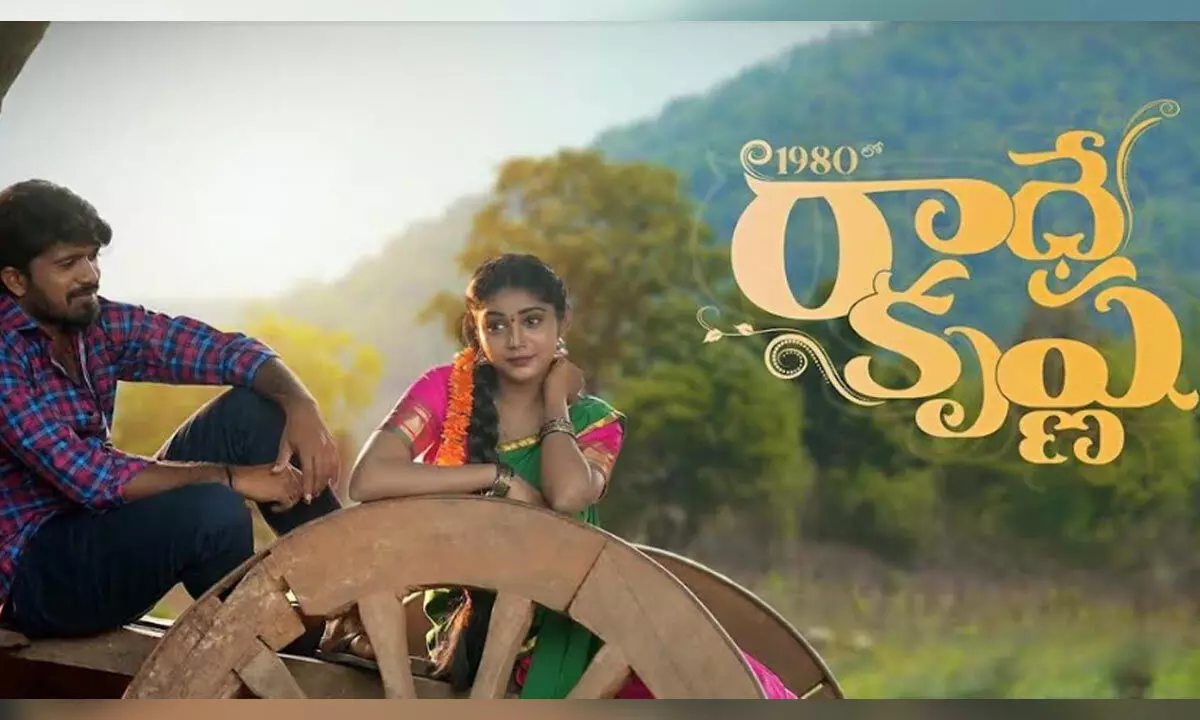‘1980 Lo Radhekrishna’ review: An engaging love story battling caste discrimination

Directed by Ismail Sheikh and produced by Voodugu Sudhakar under SV Creations, ‘1980 Lo Radhekrishna’ featuring SS Saidulu as the hero and Bhramarambika and Arpita Lohi as the female leads, the film weaves a narrative of romance, societal norms, and resistance.
Directed by Ismail Sheikh and produced by Voodugu Sudhakar under SV Creations, ‘1980 Lo Radhekrishna’ featuring SS Saidulu as the hero and Bhramarambika and Arpita Lohi as the female leads, the film weaves a narrative of romance, societal norms, and resistance. As the movie released in both Telugu and Banjara languages, let’s see how it fares at box-office.
Story:
The story begins with Vamsi taking his family to their ancestral village, Krishnalanka, for a local fair. His son Radha inquires about Karrasamu, a traditional village competition, leading Vamsi to recount the story of Krishna (SS Saidulu), a local legend of the sport. The narrative then shifts to 1980, where Krishna, despite being from a lower caste, shares a close friendship with the upper-caste Vamsi. Things take a turn when Vamsi’s sister Radha (Bhramarambika) falls in love with Krishna, sparking conflict in the village. As their relationship faces societal opposition and caste discrimination, the lovers must navigate through complex challenges. Simultaneously, the Maoist insurgency brewing in the village adds another layer of tension. The central question remains: Will Radha and Krishna’s love survive, or will caste prejudice force them apart?
Performances:
SS Saidulu impresses with his portrayal of Krishna, a man deeply rooted in his ideals and traditions. He effectively captures the emotions of an underdog fighting against societal oppression. Bhramarambika shines in her role as Radha, bringing both grace and strength to her character. Her chemistry with Saidulu is convincing and forms the emotional core of the film. The supporting cast, including Vamsi and others, deliver performances that enhance the film's overall impact.
Technicalities:
Director Sheikh Ismail deserves credit for tackling sensitive themes like caste discrimination and honor killings with a balanced approach. The dialogues, penned by M. Rajesh and team, are hard-hitting and thought-provoking, particularly those that question caste-based prejudices. ML Raja’s music, especially the emotional "Turupu Ravikiranam" track, blends seamlessly with the film’s rural setting. The cinematography effectively captures the essence of village life, while the screenplay maintains a steady pace, keeping the audience engaged throughout.
Analysis:
1980 Lo Radhekrishna presents a familiar yet powerful story of love and caste conflict, making it relevant for today’s audiences. The film's first half builds the romance gradually, but it’s the second half, filled with tension and societal struggles, that elevates the narrative. The film succeeds in not just telling a love story but also delivering a meaningful social commentary on caste and humanity. Overall, 1980 Lo Radhekrishna is a heartfelt film that explores love, caste, and change. With strong performances and a socially relevant message, it’s an engaging watch for those looking for more than just a typical love story.
Rating: 2.75/5










